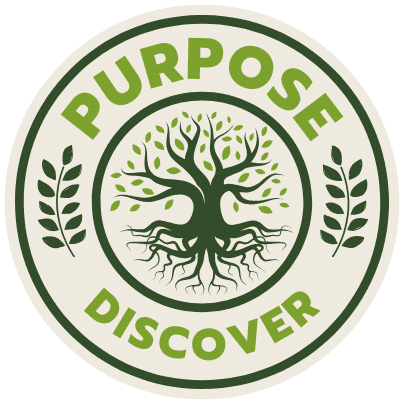There’s a peculiar kind of magic that happens when you really listen—not just the polite nodding or the “uh-huh” sounds that fill awkward silences, but deep, active listening. The kind that pulls you out of your mental clutter, cuts through the noise, and somehow points you toward your own truth. It’s strange how often we underestimate this skill, especially when it comes to figuring out who we are and where we want to go. Active listening might seem like it’s mainly about understanding others, but it’s also a secret weapon for clarifying your own personal direction.
We live in a world obsessed with talking, broadcasting, and broadcasting some more. Everyone’s mic is on, and there’s rarely a pause that isn’t filled with sound. Yet, when was the last time you stopped listening long enough to really hear yourself? Or better yet, to listen to someone else in such an engaged way that their words hit you like a revelation? That’s the kind of attentive listening that can untangle the knots in your mind about your goals, your values, and your desires.
Why Listening Is More Than Passive Noise Absorption
Most people think listening is something that just happens when sound waves hit the eardrum. That’s barely phase one. True listening demands presence. It requires your mind to be fully engaged, not drifting off to your grocery list or tomorrow’s to-do list. When you practice active listening, you’re not waiting for your turn to talk or preparing a comeback. You’re soaking in information, emotions, and context. You’re watching body language, noticing tone, and catching hidden meanings.
This is crucial because clarity about your personal direction often emerges not from a monologue you give yourself in the shower, but from a dialogue—either internal or external—that challenges your assumptions. Active listening, especially when practiced in conversations with others, introduces new perspectives and insights you might never have considered. It serves as a mirror and a sounding board, helping you to refine your thinking, clarify your values, and identify what truly matters.
Breaking Down the Noise in Your Head
Have you ever felt like your brain is on a constant treadmill—thoughts racing, options spinning, doubts creeping in? Active listening has this almost therapeutic effect on that chaos. When you slow down and tune in to someone else with genuine curiosity, your own mental noise diminishes. It’s like your brain shifts gears. Suddenly, you’re not just reacting or fretting, but absorbing and reflecting. The act of listening pulls you out of your self-judgment and into a place of open-mindedness.
But here’s the kicker: you don’t have to listen only to others to get this benefit. Listening to your own thoughts and feelings, as if you were a compassionate friend, is equally powerful. This kind of self-listening demands a practice of honesty and patience. It’s not about silencing your doubts or fears but hearing them fully, naming them, and deciding whether their voice deserves to guide your path.
The Role of Questions in Active Listening
One of the most overlooked aspects of active listening is how it involves asking better questions—not to interrogate, but to illuminate. When you listen actively, you naturally want to understand more. This curiosity invites you to pose questions that dig beneath the surface. “What do you mean by that?” “Why does that matter to you?” “How does that make you feel?”
These questions are like flashlights in a dark room of uncertainty. They help tease out buried desires or conflicting motivations that otherwise stay hidden. When you apply this in conversations with mentors, friends, or even yourself, you begin to map out the landscape of your personal direction with more clarity and confidence.
The Gift of Reflection
A huge part of active listening is reflection. Not just repeating what you heard, but reflecting it back with empathy and insight. This step isn’t just for the speaker’s benefit; it forces you to slow down, assess, and truly process what’s been shared. Reflective listening can reveal blind spots and contradictions in your own thinking.
For example, imagine talking with someone about your career dreams. As you listen to their feedback or share your own doubts, reflecting back the essence of what’s said helps you catch nuances you might otherwise miss. Maybe you think you want a high-profile job, but in reflecting, you realize it’s the recognition you crave, not the job title itself. That subtle shift can be transformative.
Listening as a Tool for Emotional Clarity
Emotions are messy and often misleading, but they’re also signposts. Active listening helps you get comfortable with your feelings instead of running from them. When you listen attentively—whether to yourself or another—you begin recognizing patterns in emotional responses. Are you anxious when you talk about your goals? Excited? Overwhelmed?
This emotional intelligence gained through listening is invaluable. It teaches you which impulses to trust and which to question. Sometimes the loudest emotions are just fear in disguise, while quieter ones might be true desires waiting patiently to be acknowledged.
Active Listening in Practice: Real-World Scenarios
Think about a time when a conversation with a friend changed your perspective. Maybe they asked a simple question that made you reconsider your next move. Or perhaps they shared a story that resonated so deeply you suddenly understood your own feelings better. That’s active listening at work.
In professional settings, active listening during coaching or mentoring sessions sharpens your focus. When your coach listens fully and offers thoughtful feedback, it’s easier to strip away noise and pinpoint what matters. You begin to recognize your strengths and weaknesses with less judgment and more clarity.
Even in daily life, practicing active listening can transform your internal compass. Try this tonight: have a real conversation with someone without distractions, without multitasking. Listen—not just to respond but to understand. Notice how their words resonate or clash with your own thoughts and feelings. That tension or alignment is where your personal direction often lives.
Why Most People Fail at Listening—and What That Costs Them
Despite its obvious benefits, active listening is surprisingly rare. Our culture rewards speaking up, being heard, and making quick decisions. Listening is passive-seeming and time-consuming. Plus, it demands vulnerability. You have to be willing to confront uncomfortable truths, admit ignorance, or shift your worldview.
Neglecting to listen actively can leave you stuck in mental loops, chasing goals that aren’t really yours or avoiding decisions because of unacknowledged fears. It’s like trying to navigate a dense forest with a blurred map. You move, but mostly in circles.
When you make active listening a habit, you build a sharper, clearer map of your life. You start recognizing which paths lead to fulfillment and which are dead ends masquerading as opportunities.
The Surprising Link Between Listening and Purpose
If you’re hunting for a sense of purpose, active listening is not just useful—it’s essential. Purpose isn’t something you find by scrolling through social media or reading inspirational quotes. It’s something you uncover by engaging deeply with your own experiences and those of others.
The website discover more about finding your unique purpose highlights how listening is foundational in this quest. Purpose often reveals itself in the spaces between words, in the emotions conveyed, and in the questions that arise when you’re truly present. It’s an ongoing conversation with life, not a one-time epiphany.
On days when your direction feels foggy, practicing active listening—whether through journaling, talking with a mentor, or simply paying attention to the world around you—can bring surprising clarity. Listening slows you down enough to notice what really sparks your energy and what drains it.
Some final musings: active listening isn’t a magic pill. It doesn’t erase confusion overnight or guarantee you’ll nail your life’s mission by next week. But it equips you with a tool far more valuable—a finely tuned awareness of yourself and the world. That awareness is a compass that points you toward a personal direction that feels honest and alive.
Want to dive deeper into how listening connects to your path? Check out the insights shared at a thoughtful resource on understanding your life’s direction. It’s a place where the art of listening meets the search for meaning, and where you might find just the spark you need to move forward.

